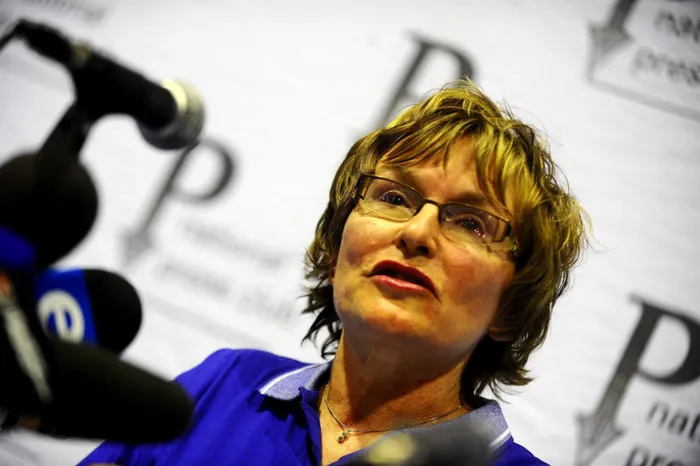‘Drastic DA action’ needed in province

Quinton Mtyala
Political Writer
PREMIER Helen Zille says she is to reshuffle her provincial cabinet, two years into its five-year term.
“There are lots of dominoes that will have to fall into place before we make an announcement on Monday,” Zille said.
Zille needs to fill a vacancy in her cabinet when Social Development MEC Patricia de Lille is elected Cape Town mayor on June 1.
And a source, a senior official within the DA, said the reshuffle was needed because drastic action had to be taken to increase the party’s electoral support in Cape Town’s black townships after its victory in Cape Town and 15 other municipalities in the Western Cape in the local government elections last Wednesday.
Although the DA increased its support, it was trounced by ANC candidates in the townships, who in some wards received more than 95 percent of the vote. “We have to look at our current leadership there who, despite numerous resources available to them, have failed to make significant electoral gains for the party,” said the official, who spoke on condition that his name was not used.
The DA had established more than 24 branches along the “N2 Constituency”, which encompasses most of the city’s black townships, holding several events there and putting up ward candidates.
All this amounted to 6 154 votes for the DA in all of Cape Town’s townships.
DA leaders in the city council have quietly expressed frustration at its poor showing in Cape Town’s townships, considering it was in charge of both the city and the province.
“There’s only so much we can do with coloured and white voters … the townships are the future,” the official said.
But Zille said she was happy with the DA’s performance, saying the party had “tripled” its support in Cape Town’s black townships from the 2006 local government elections.
“We’ve tripled our support there, (but) I’d like to improve our performance,” Zille said.
The DA’s chief strategist, Ryan Coetzee, said the party’s support among black voters was 5 percent nationally, but he added that “growth takes a long time”.
“For us, it’s not who people voted for (in Cape Town’s black townships), but that we govern well,” Coetzee said.
He said it was “enormously difficult”, with South Africa’s deep social divides, to cross established political divides.
“It takes a bit of time. Nationally we’ve broken through the barrier (in terms of growing our support). We’ve got to work hard, to make sure that we’re a party that’s diverse in (our) membership and leadership,” Coetzee said.
“Our party should belong to all in South Africa who share our values. We are working very hard to achieve that.”
DA MP Masizole Mnqasela, whose constituency is Khayelitsha, said the party had made “significant inroads” into Cape Town’s black townships.
“In 2006, we only had 3 000 votes, in 2011 we got 6 154 votes, it’s an increase of 100 percent,” Mnqasela said.
Although this had been below expectations, Mnqasela said “half a loaf was better than none”.
He said the DA’s biggest hurdle in attracting more black voters was a perception that it was a party which was dominated by white interests.
“We’ve got to be patient, we’ve got to be on the ground permanently, we’ve got to be seen to be doing things,” Mnqasela said.
Members of Zille’s cabinet had to be seen more in the townships, where voters could see them delivering services, he said.
quinton.mtyala@inl.co.za